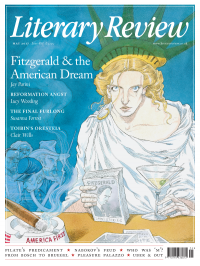Paul Lay
Wrangling Radicals
The Leveller Revolution
By John Rees
Verso 490pp £25
Given their immense influence on the histories of Britain and Ireland, not to mention the drama and the personalities involved, the civil wars of the mid-17th century and their aftermath are curiously neglected by the public. While barely a day passes without the publication of yet another study of a Tudor monarch, the century that followed remains in shadow, despite the range and excellence of the historians who plough this fertile field. True, there is no shortage of biographies of Oliver Cromwell, though even he had to stand back as his namesake Thomas grabbed public attention following the success of Wolf Hall, but we lack major biographies of such figures as John Lambert and John Thurloe, while mention of the Interregnum (a period of assassination attempts, gunpowder plots, religious fundamentalism, intense political debate and Caribbean catastrophes) is met with a blank look.
There is one exception to this neglect: the Levellers. For a long time, the Levellers – radicals of relatively privileged backgrounds, such as John Lilburne, Richard Overton, William Walwyn and Edward Sexby – were darlings of the Left. They were brought to life in the late 1960s and early 1970s

Sign Up to our newsletter
Receive free articles, highlights from the archive, news, details of prizes, and much more.@Lit_Review
Follow Literary Review on Twitter
Twitter Feed
Under its longest-serving editor, Graydon Carter, Vanity Fair was that rare thing – a New York society magazine that published serious journalism.
@PeterPeteryork looks at what Carter got right.
Peter York - Deluxe Editions
Peter York: Deluxe Editions - When the Going Was Good: An Editor’s Adventures During the Last Golden Age of Magazines by Graydon Carter
literaryreview.co.uk
Henry James returned to America in 1904 with three objectives: to see his brother William, to deliver a series of lectures on Balzac, and to gather material for a pair of books about modern America.
Peter Rose follows James out west.
Peter Rose - The Restless Analyst
Peter Rose: The Restless Analyst - Henry James Comes Home: Rediscovering America in the Gilded Age by Peter Brooks...
literaryreview.co.uk
Vladimir Putin served his apprenticeship in the KGB toward the end of the Cold War, a period during which Western societies were infiltrated by so-called 'illegals'.
Piers Brendon examines how the culture of Soviet spycraft shaped his thinking.
Piers Brendon - Tinker, Tailor, Sleeper, Troll
Piers Brendon: Tinker, Tailor, Sleeper, Troll - The Illegals: Russia’s Most Audacious Spies and the Plot to Infiltrate the West by Shaun Walker
literaryreview.co.uk